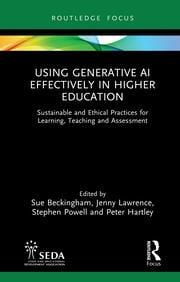Ethical Considerations in AI-Driven Learning: Safeguarding Integrity in Modern Education
Introduction
Artificial Intelligence (AI) has emerged as a transformative force in education, fundamentally changing the way students learn and educators teach. from adaptive learning platforms to smart assessment tools, AI-driven learning promises personalized learning experiences, greater efficiency, and improved educational outcomes. Yet, as AI becomes more embedded in the fabric of modern education, it raises meaningful ethical considerations that must not be overlooked.
In this comprehensive article,we’ll delve into the benefits of AI-powered education,explore crucial ethical concerns,and provide practical guidance on safeguarding academic integrity in the digital age.
Understanding AI-Driven Learning: Benefits and opportunities
AI-driven learning refers to the request of artificial intelligence solutions within educational systems to automate processes, analyze data, and tailor instruction. The possibilities are vast and exciting:
- Personalized experiences: AI algorithms can adapt content to individual learning styles, paces, and preferences.
- Efficient grading and assessment: Automated grading saves time for educators and provides instant feedback for students.
- Data-driven decision making: AI harnesses big data to identify learning gaps and recommend targeted interventions.
- Enhanced accessibility: Educational AI can provide support for students with disabilities and those in remote locations.
- 24/7 learning assistance: Chatbots and virtual tutors offer around-the-clock support for learners.
”The promise of AI in education is immense, but its implementation must be guided by ethical frameworks that ensure fairness, privacy, and integrity.” – Educational technology Expert
Key Ethical Considerations in AI-Driven Education
As schools and universities embrace AI technologies, it is indeed imperative to address the following ethical issues to safeguard integrity and protect students’ rights:
1. Data Privacy and Security
AI systems frequently enough rely on vast amounts of student data—ranging from academic records to behavioral insights. Without stringent privacy safeguards, this data can be vulnerable to misuse, theft, or unauthorized access.
- Implement robust data encryption and secure storage.
- Comply with relevant data protection regulations such as GDPR or FERPA.
- Educate students and staff on privacy risks and best practices.
2. Algorithmic Bias and Fairness
If not carefully designed, AI algorithms can amplify existing biases found in training datasets. This can lead to unfair or discriminatory outcomes, particularly in admissions, assessment, and disciplinary actions.
- Regularly audit AI models for bias and discriminatory patterns.
- Utilize diverse datasets that represent various ethnicities, backgrounds, and perspectives.
- Foster transparency in the growth and deployment of educational AI.
3.Transparency and Explainability
Students, instructors, and parents need clarity on how AI systems make decisions. Opaque algorithms can erode trust and create confusion around grade assignments or recommendations.
- Prioritize explainable AI, where system decisions are comprehensible to users.
- Clearly disclose the use of AI tools in educational processes.
- Provide avenues for appeal or human oversight in key decisions.
4. Academic Integrity and Authenticity
With the rise of AI-assisted essay writing, homework completion, and personalized tutoring, concerns about academic integrity are intensifying.AI can both help detect cheating and, paradoxically, facilitate it.
- Use AI-based plagiarism detection and anti-cheating technologies responsibly.
- Design assessments that emphasize critical thinking over rote memorization.
- Empower educators to integrate AI tools without compromising authenticity.
5. Human-AI Collaboration and Teacher Autonomy
AI should augment, not replace, the role of skilled educators. Ensuring that teachers retain autonomy and judgment is an ethical imperative.
- Involve teachers in the development of AI learning solutions.
- Offer professional development on effective AI integration.
- Maintain human oversight, especially in disciplinary and assessment contexts.
Safeguarding Integrity in Modern Education: Practical Tips
Educational leaders and institutions can take concrete steps to embed ethics into their AI-driven learning environments:
- Establish an ethical AI framework: Create policies outlining acceptable AI use and oversight mechanisms.
- Promote digital literacy: Teach students and educators about AI concepts, privacy, and ethical risks.
- Engage stakeholders: Involve parents, students, and community members in dialog about AI’s role in education.
- Monitor outcomes: Regularly review AI impact on student performance, well-being, and equity.
- Stay updated on technology trends: Adapt ethical guidelines as AI capabilities evolve.
Case Studies: Ethical AI in Real Classroom Contexts
Case Study 1: Adaptive Learning in K-12
in a large school district, the deployment of adaptive learning platforms raised privacy concerns among parents. District leaders responded by:
- Organizing parent workshops on data security measures.
- Implementing student consent protocols for data usage.
The result? increased trust, higher adoption rates, and improved personalization without sacrificing privacy.
Case Study 2: Bias in AI Admissions
A prominent university identified racial bias in its AI-powered admissions system.By collaborating with external ethicists and using more representative training data, the institution:
- Mitigated unfair outcomes.
- Improved transparency in selection criteria.
- Enhanced overall fairness in admissions processes.
First-Hand Experience: Educator Insights
”AI has streamlined manny administrative tasks,but keeping the human element central is key. Regular dialogue about data privacy, and open channels for teacher feedback, make AI adoption smoother and safer.”
– High School Principal, California
Conclusion
The future of education is undoubtedly AI-driven, with extraordinary promise for student success and institutional advancement. Yet, maintaining a vigilant focus on ethical considerations is crucial to safeguard integrity and foster equity. By embracing transparency, ensuring fairness, protecting privacy, and promoting teacher autonomy, schools and universities can harness the full potential of AI technologies while minimizing risks.
As we stand at the intersection of technology and pedagogy, let us move forward thoughtfully—building digital classrooms where innovation and ethics go hand in hand. For institutions, educators, and learners alike, responsible AI implementation is not just an option; it’s a necessity for true educational progress.

